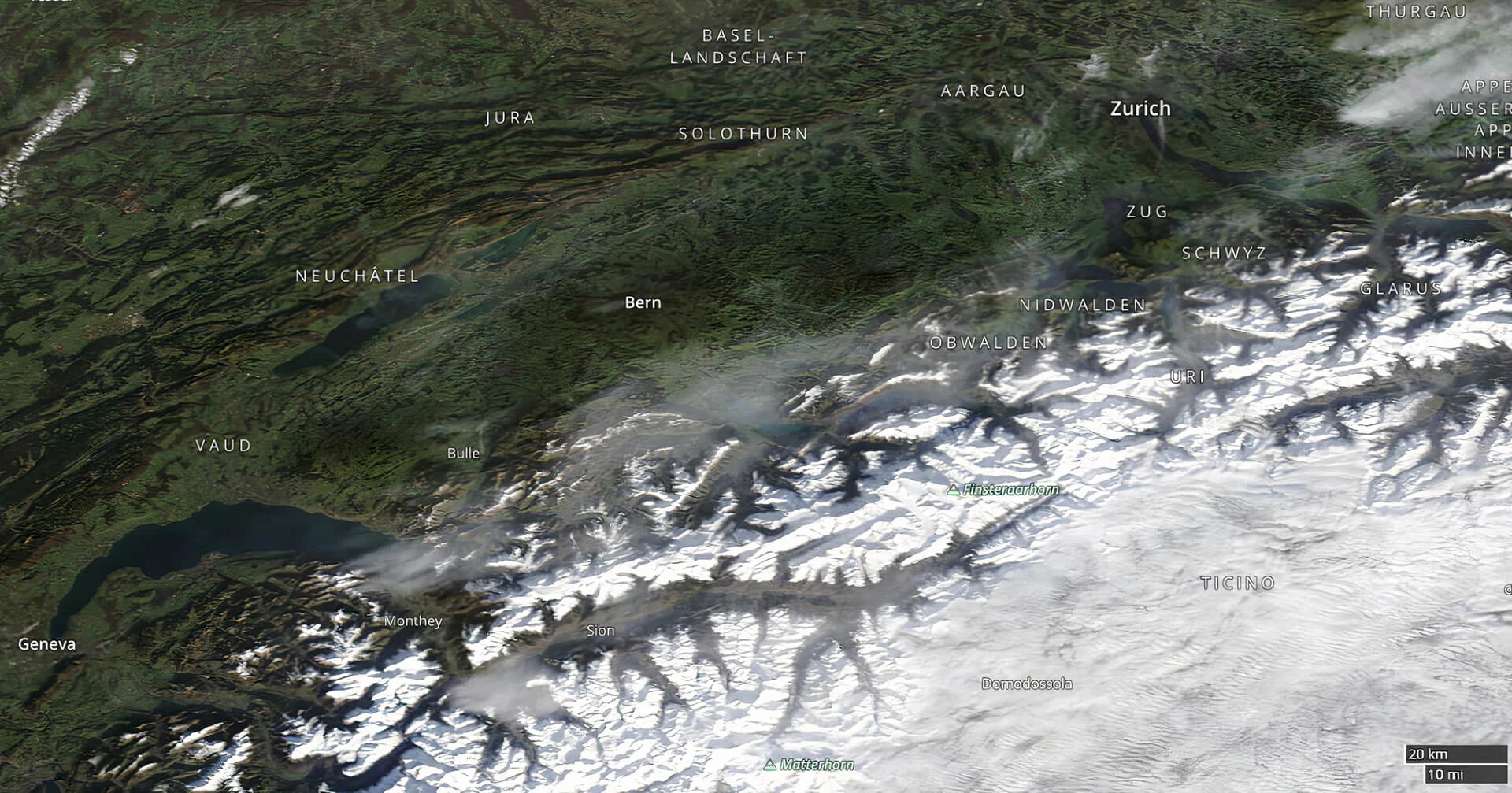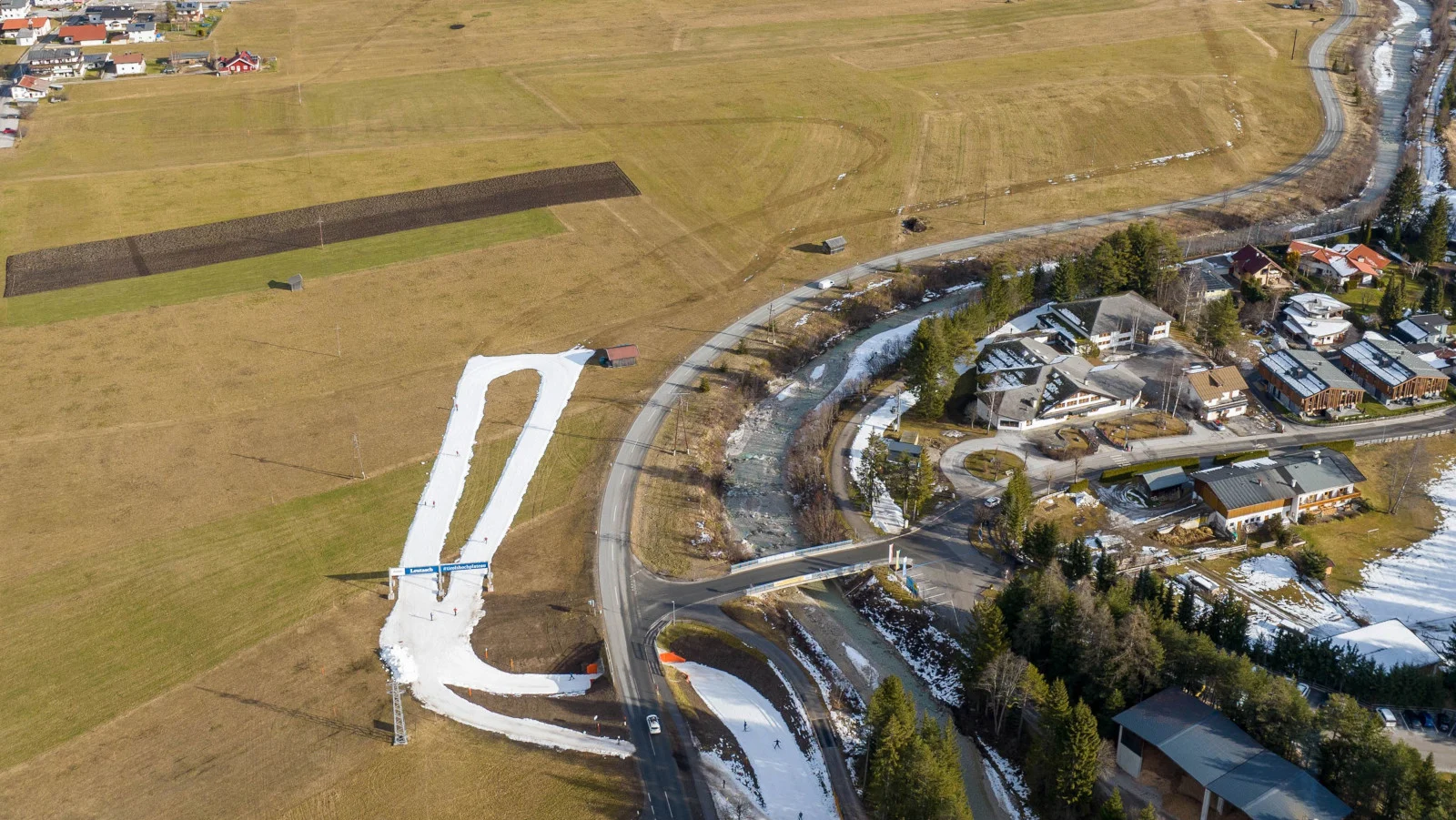
Impacts of Europe’s extreme winter heat wave visible from space
Hundreds of temperature records were broken, with numerous European cities experiencing summer-like heat.
On New Year's Day, in the middle of winter, temperatures soared across Europe with some breaking records set over 150 years ago.
2023 has gotten off to a slightly warm start in some parts of the world. Across Europe, though, locations that would normally have seen temperatures hovering around the freezing mark on New Year’s Day were instead inundated by weather that pushed the mercury up to summer-like heights.
“In Brest, Belarus, temperatures would normally be around 0°C at this time of year but reached a balmy 15.9°C on New Year’s Day, eclipsing its previous January record by a considerable margin,” the UK Met Office said on their website.
A post by the Extreme Temperatures Around the World account on Twitter highlighted several extremes, including 19°C temperatures recorded in Korbielow and Jodłownik, Poland, and 19.6°C in Eindhoven, Netherlands.
Visokaye, Belarus saw a temperature of 16.4°C, breaking the previous national record for the day by 4.5°C!
According to Copernicus: “Hundreds of temperature records have been broken and summer-like temperatures have prevailed in numerous cities across the continent.”
The imagery that accompanied this post, captured by one of Copernicus’ Sentinel-2 satellites, showed the lack of snow in Altdorf, Switzerland, on January 1. This small town in the Swiss Alps recorded a daily high of 19.6°C and temperatures remained above 16°C even overnight, breaking a record set back in 1864.
The two overlapping images below were captured by the MODIS instrument on NASA’s Terra satellite on January 1, 2022 and January 1, 2023. They reveal the difference in snow cover across the northern slopes of the Swiss Alps on those two dates, just one year apart. (Please use the slider to reveal each image in turn.)
Delémont, roughly 140 km northwest of Altdorf, recorded a temperature of 20.2°C. MeteoSwiss, Switzerland’s national weather service, tweeted out that this was the first time they had ever seen temperatures north of the Alps exceed 20°C in January!
Back on the ground, some of the most striking imagery comes from the snowless ski slopes of some of Europe’s most famous resorts. Bloomberg Green reported that, according to researchers, by the year 2100 “only resorts above 2,500 metres will get enough natural snow to stay in business.”

This aerial view of the base of a ski slope in Leutasch, Austria was taken on January 2, 2023. The artificial snow covering the slope is surrounded by snow-free meadows due to the heat wave impacting Europe. (Daniel Liebl/Zeitungsfoto.at/AFP via Getty Images)
Is this climate change?
According to the UK Met Office, this record-breaking heat was partly due to a warm air mass from the west coast of Africa. According to the Swiss news site The Local, MeteoSwiss said that the extreme temperatures north of the Alps were also partly attributed to the Foehn effect — a phenomenon similar to Chinook winds, where air flowing down the lee side of the mountains warms up as it descends.
It’s difficult to attribute a single day’s temperatures to climate change. However, this was clearly a remarkable and unprecedented event.
“Although this specific event can’t be attributed to climate change without a formal study, the increases in average global temperatures caused by human activities such as burning fossil fuels makes it more likely that temperature records will be broken,” said Met Office Climate Scientist Rosie Oakes.
“What’s noteworthy about this event is how widespread it is as well as the amount previous records have been exceeded by,” Oakes explained. “Climate models project that both the frequency and intensity of these warm weather events will increase in the future, not just in the summer but in the winter too.”












